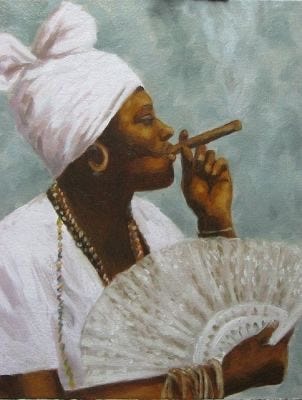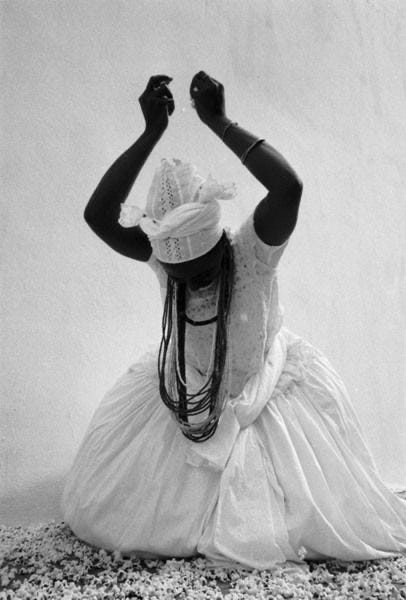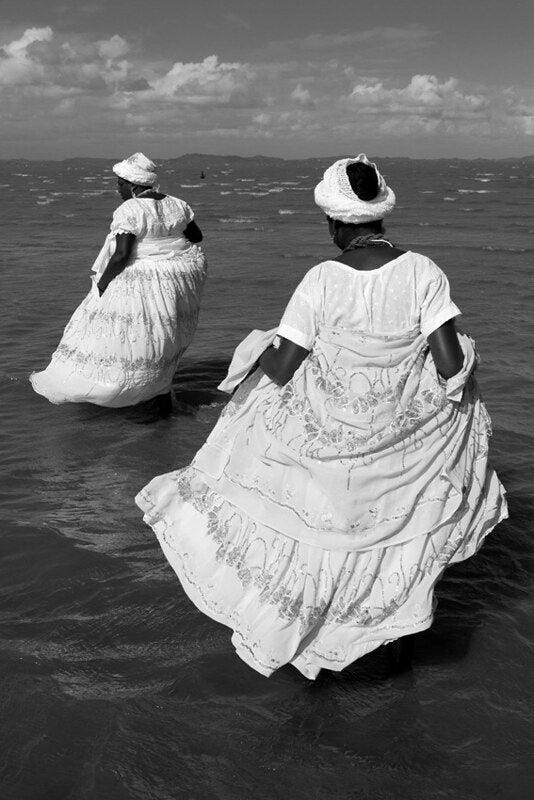Exploring the shift: Why Black women are leaving the church
Have you read Grace by the water yet? Well if not, go ahead and read it, then come back!
I'm warnin' everybody
Soon as I get in this party
I'm gon' let go of this body
I'm gonna love on me
Nobody can judge me but me (Ooh)
I was born free (Ooh, ooh)
I'll drop it like a thottie, drop it like a thottie
I said now pop it like a thottie, pop it like a thottie (You bad)
Me say now drop it like a thottie, drop it like a thottie (You bad)
Church girls actin' loose, bad girls actin' snotty (You bad)
Let it go, girl (Let it go), let it out, girl (Let it out)
Twirl that ass like you came up out the South, girl (Ooh, ooh)
I said now drop it like a thottie, drop it like a thottie (You bad)
Bad girl actin' naughty, church girl, don't hurt nobody!
High key one of my favorites from Renaissance; not my favorite for what you may think. Sure, I am a “church girl,” but I think Bey wrote the song for Michelle. Makes sense if you think about it. Anyway, happy Sunday, suge! Hope all is well. It is officially November, and it’s still hot as hell in Texas. I swear, every time I walk outside, I sweat like a whore in church. Hehe, okay, I didn’t intend to make that joke on theme for today’s read, but what can I say? I am a genius and a Southern belle!
Initially, when I contemplated writing this, I was not sure, because my audience is pretty varied wholly appreciated, but still varied. From deeply conservative folks (in religion, not politics) to pretty liberal folks (again… not politics). Now, if you read Grace by the Water (which if you didn’t, what are you waiting on sha?), you should have a general understanding of me and my background with the church. Although I still maintain beliefs from my upbringing, there has been a shift. You’ve heard the phrase, “I’m not religious, I’m spiritual” or “I’m more spiritual than religious,” and yeah, I can say that for myself. The journey to come to this conclusion is a personal one, so I’ll let you noodle on what that could possibly look like. However, I would like to chat with you about the overwhelming rate of Black women, specifically young Black women, leaving the church in droves. I hinted at it a bit in Grace by the Water, but I want to get into the weeds of it a bit. When I say young, I mean women under 35, maybe even under 40.
In the Black community, we credit the church for a lot of things, like building community, feeding the hungry, housing the homeless, helping out financially, educating the youth, and keeping children off the streets. When I was younger, my church would give candy away on Halloween, even though it was, and by some still is, considered a “pagan” holiday. But the church still wanted to do something for the kiddos. Although these are amazing feats, the church still has its glaringly obvious problems.
Some churches take issue with one’s sexuality, pastors and other trusted leaders steal money from parishioners, rampant sexual abuse of children, mistreatment and blatant misogynoir... whew, and then the gall and audacity to throw an all-seeing, all-knowing entity like God into the mix. Personally? I always questioned religion—no, really questioned it. Why would my ancestors, who were kidnapped and suffered all types of inhumane abuse and torture, willingly praise the same God their kidnappers had praised? Chile, that ain’t make sense at 9, and it don’t make sense now! You know, I once had someone I thought was a friend call me a hotep, and chile, this is not that (because I wholeheartedly think hoteps along with the Black Israelites are… different). This is questioning with the refusal to accept what is being told to me. We aren’t friends, by the way, and I like it that way.
Remember, I am not trying to change you or your mind. I’m not trying to convert you or make you question your reality. But I do urge you to open your mind—it can be scary, but answers are more comforting than questions. In my opinion, religion has made us comfortable to the point of laziness. I’ll even go as far as to say it has allowed us as a people to skirt accountability for a long, long time. Religion has also shown itself as a tool of control; for example, look back at my ancestors. The threat of burning for eternity (once you die by the master's hand, might I add) in hell scared enough enslaved folks to “keep them in line.” Not all of them, and not all the time, but Christianity, in my opinion, has done more harm than good when it comes to my community. Not the study and actual practice and belief in Christ, but the bastardization of the religion by unscrupulous, usually white, usually male people who used it to control others. Sometimes I think white people think God left them in charge and chile...
Christianity, while deeply rooted in Black communities, historically arrived in Africa through colonization, often displacing indigenous spiritual practices. Black women leaving traditional Christian churches and finding spiritual fulfillment in African Traditional Religions (ATRs) such as Yoruba, Ifá, and Vodun reflects a profound cultural, spiritual, and personal awakening. Practicing ATRs has allowed for a chance at reclaiming cultural knowledge that is both personal and ancestral. Embracing these traditions offers a way to honor identity, reconnect with our roots, and participate in rituals that celebrate African cultural heritage.
ATRs like Yoruba or Vodun center on balance, duality, and the idea that spiritual beings embody both masculine and feminine traits. This balance allows practitioners to explore spirituality in ways that feel empowering, inclusive, and representative of lived experiences. One thing I think of periodically when it comes to religion and its connection to the Black community is shame—something not very common in traditional ATRs. When I was growing up, anytime I did something “sinful” like tell a lie or take one of my Grampie’s quarters from his jar, my great-grandmother would threaten to put me in front of the church. If you know, you know. It’s basically a public confessional or humiliation, however you choose to look at it.
For some, the church has not been a refuge from racial or gender-based trauma but, in some cases, a source of it. Experiences with racism, sexism, or discrimination in church environments can alienate one from traditional Christianity. African Traditional Religions often emphasize a holistic approach to healing that includes mind, body, and spirit—a stark contrast to the more compartmentalized approach found in many Western religions. ATRs offer rituals, ancestor veneration, and other practices that prioritize healing from historical and generational trauma.
So how is it possible to be in a church with God present, but all these less-than-godly aggressions are taking place in God’s house? There’s also the fact that some believe they are more heard when venerating their ancestors and worshiping the gods and Orisha of ATRs. The resurgence of ATRs has been facilitated by social media, where practitioners and educators share knowledge, resources, and community spaces that were once largely hidden or inaccessible. Social media has opened up new avenues for those who seek to learn about ATRs, see practitioners who look like them, and hear perspectives that resonate with their own experiences. This accessibility has been pivotal in breaking down the stigma that often surrounds ATRs, making them more visible and inviting for those curious about different spiritual paths.
The growing interest in ATRs signals a powerful shift in the understanding of faith, spirituality, and cultural identity. This trend isn’t necessarily about rejecting Christianity; for many, it’s about seeking a path that feels authentic, empowering, and rooted in a holistic worldview. ATRs, in my experience, offer women spaces to explore identity, find healing, and cultivate community in ways that align with their values and lived experiences. As more women continue to embrace these traditions, they are helping to redefine spirituality for a new generation, fostering a sense of empowerment and belonging that’s both personal and collective.
By understanding this shift, we can appreciate the richness of diverse spiritual paths and the ways they shape personal and community growth. The journey toward ATRs reflects a dynamic and evolving spiritual landscape where identity, heritage, and empowerment meet in meaningful ways. So the next time, someone one threatens to put you in church, or assign you 1000 Hail Marys, remember, nobody can judge me, I was born free! I’ll see you next week, sha! Brya









